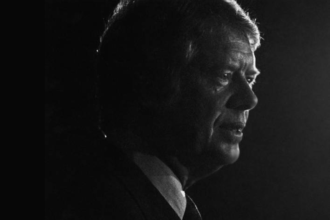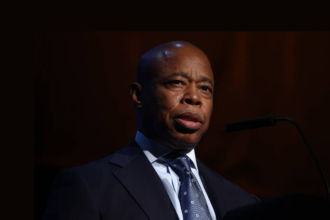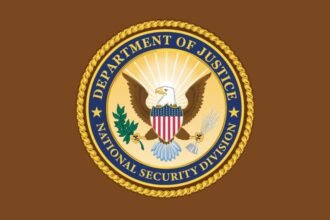In a historic ruling, the US Supreme Court has upheld a significant gun control measure passed by the Biden government targeted at controlling so-called ghost guns—untraceable weapons made at home using kits. With a 7-2 majority, the decision represents a change for the court with conservative leanings, which has always been dubious of gun control. Legal experts believe this ruling reflects an acknowledgement of the rising worries about untraceable weapons and their consequences for public safety.
What Are the Updated Guidelines?
First unveiled in 2022, the regulations mandate producers to include serial numbers on weapon kits and to run background checks on buyers. Following law enforcement’s worries about the growing frequency of ghost weapons in violent crimes, the Biden administration instituted these policies. Further supporting more stringent control are reports of an alarming increase of ghost weapons being seized at crime scenes by federal agencies, including the Bureau of Alcohol, Tobacco, Firearms and Explosives (ATF).
According to the new rules, even partially finished gun kits must be handled as constructed guns. This closes a loophole, allowing anyone to buy these kits free from the control applied to conventional weapons. Gun law experts contend that this decision will make it far more difficult for anyone to get untraceable guns without first doing background checks.
Why Should Ghost Guns Cause Concern?
Ghost firearms have become the fastest-growing gun safety concern in the United States, according to advocacy groups. Since 2017, the total count of such weapons found at crime scenes has jumped more than 1,000%. Criminals choose Ghost weapons since they are practically untraceable and can be manufactured at home without serial numbers.
Ghost weapons have raised serious questions for law enforcement officials throughout the nation regarding their influence on violent crime. Ghost firearms are clearly showing up in gang-related violence, murders, and armed robberies, according to police chiefs from big cities, including New York, Los Angeles, and Chicago. Without serial numbers, tracing these weapons back to their original owners or origins is almost impossible, complicating criminal investigations.
How did the Justices rationalize their choice?
Writing for the majority, Justice Neil Gorsuch underlined how easily lethal weapons may be built. “Perhaps a half hour of work is required before anyone can fire a shot,” he noted. The name of the kit captures it all: “Buy, Build Shoot.” The decision upholds the federal government’s power under current gun legislation to control ghost weapons.
Legal experts have noted that this finding conforms with past decisions supporting gun safety policies meant to keep weapons from ending up in the wrong hands. The overwhelming view also underlined the need for a mixed strategy between the Second Amendment rights of law-abiding people and the necessity to restrict access to untraceable weapons used in criminal activities.
Arguments Made Against the Policies?
Gun rights groups contested the rules, contending that the federal government had overreached itself in imposing such limitations. Whether a 1968 law—requiring gun makers and dealers to undergo background checks, retain sales records, and register firearms with serial numbers—should include ghost guns was the primary legal argument.
Critics of the judgment contend that it violates the rights of gun lovers and hobbyists who manufacture their weapons for personal consumption. Some proponents of gun rights argue that the proposed regulations are overly expansive and might result in more limitations on legitimate gun ownership. Groups like Gun Owners of America and the National Rifle Association (NRA) have committed themselves to keep opposing what they see to be an unconstitutional expansion of government authority.
Under what justification did the government present?
The legal team of the Biden administration argued that ghost gun kits ought to follow the same laws as regular weapons. Their case was that these kits let “anyone with basic tools and access to internet video tutorials to assemble a functional firearm quickly and easily.” Emphasizing the rising part ghost weapons play in criminal activities, the government cited rising recoveries at crime sites.
Public safety officials also underlined that the absence of rules regarding ghost guns resulted in a dangerous loophole allowing people to evade the protections designed for conventional weapons. A Department of Justice spokesman said, “if you can buy a gun kit without any background check, assemble it at home in under an hour, and use it with no way to trace it back, that’s a major public safety issue.”
How Might a High-Profile Murder Affect the Discussion?
Following the well-publicized murder of UnitedHealthcare CEO Brian Thompson in New York in December 2024, ghost firearms attracted fresh attention. According to investigators, the black pistol supposedly taken from Luigi Mangione, the defendant apprehended related to the murder, seemed to be a ghost gun. This instance highlighted issues about the anonymity and accessibility of such weapons.
Legal professionals point out that well-publicized events like this one usually trigger legislative reforms. “When a well-known person dies from gun violence involving an untraceable weapon, it emphasizes the need for legislative actions,” stated a Harvard University criminal justice expert. Following Thompson’s murder, public outcry strengthened demands for more rigorous enforcement of ghost gun rules, therefore exerting pressure on the Supreme Court to support Biden administration policy.
The Future of Gun Policy?
It is unknown how the Trump administration will handle gun violence and gun control in the future. In February, Donald Trump signed an order instructing the Attorney General to evaluate firearms rules about Biden-era policy. The result of this study might significantly influence how ghost gun control is handled in the United States in the future.
Given the strong support of the Republican base for gun rights, several political experts anticipate that the Trump government would try to relax some limitations. Others counter that the Supreme Court’s decision creates a strong legal precedent that will make it challenging for successive administrations to eradicate these rules.
Advocates of gun control are urging more legislative actions to control the distribution and selling of gun kits. “While the Supreme Court ruling is a step in the right direction, we need Congress to pass comprehensive legislation to ensure that ghost guns do not continue to proliferate in our communities,” stated a spokesman from a national gun safety organization.
The Supreme Court’s ruling on ghost firearms marks a turning point in the continuous struggle to strike a balance between Second Amendment rights and public safety issues while arguments over gun regulation last. The problem of how best to control ghost weapons will probably stay at the top of policy debates in the future as gun-related crime rises.








